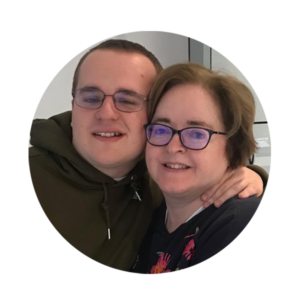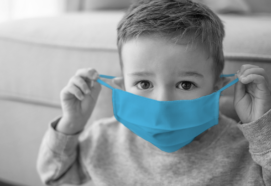This recording, and slides, are only available to delegates who booked to attend.
This conference covered two key themes ‘Assessment, Diagnosis & Formulation in CAMHS-ID’ and ‘Supporting Behaviours that Challenge in CAMHS-ID’, with talks from some of the leaders in the field, a lived experience viewpoint, together with Q&A plus panel discussions.
This webinar was jointly organised by: Child & Adolescent Intellectual Disability Psychiatry Network (ACAMH) and Child Learning Disability Network (Division of Clinical Psychology Faculty for Children Young People and Families, British Psychological Society).
Slides – Professor Emily Simonoff
Slides – Becky Hinch
Slides – Professor Richard Hastings
Slides – Mary Busk
Slides – Dr. Heather Armstrong
Slides – Dr. Martha Laxton-Kane, Alex Leedham, and Jules Ward
Slides – Dr. Bethanne Willingham
About the day
Supporting behaviours that challenge in children with intellectual disabilities is a complex and multifaceted process that requires a thoughtful and individualised approach. Effective support plans for children with intellectual disabilities should be flexible and adaptable, as the child’s needs and behaviour patterns may change over time.
Ongoing assessment and evaluation of the support plan are essential to ensure that it continues to meet the child’s evolving needs. In addition to providing support for the child’s challenging behaviour, it is also important to focus on promoting the child’s overall development and well-being. This includes providing opportunities for the child to participate in activities that they enjoy and that build on their strengths and interests. It also involves promoting the child’s independence and self-determination, and ensuring that they have access to appropriate education, healthcare, and social services. By working together with the child, their family, and their caregivers, it is possible to develop effective support plans that promote positive behaviour and enhance the child’s overall development and well-being.
Programme
09:15 Dr. Ashley Liew (CAIDPN), and Dr. Bethanne Willingham (BPS) – Welcome
Morning Theme: Assessment, Diagnosis & Formulation in CAMHS-ID.
Chair: Dr. Ashley Liew, Consultant Paediatric Neuropsychiatrist
09:30 Professor Emily Simonoff – Keynote: ‘Challenges in the Diagnosis of Neurodevelopmental Conditions in Children with ID’
10:10 Questions & discussion
10:30 Becky Hinch, and Dr. Karen Bretherton – ‘Communicating Clinical Formulations to Families: Presentation & Panel Discussion’
11:10 Break
11:30 Professor Richard Hastings – Keynote: ‘Mental Health and Stress in Families of Children with Intellectual Disability’
12:10 Mary Busk – Family carer perspective
12:30 Questions & Discussion
12:50 Lunch
Afternoon Theme: Supporting Behaviours that Challenge in CAMHS-ID.
Chair: Dr. Martha Laxton-Kane, Consultant Clinical Psychologist
13:40 Dr. Heather Armstrong – ‘Role of key skills as a risk marker for development of behaviours that challenge in Children with ID’
14:20 Dr. Martha Laxton-Kane – Skills Development to reduce Challenging Behaviours in LD CAMHS
14:50 Questions & discussion
15:10 Break
15:30 Dr. Bethanne Willingham – ‘PBS: Is it broken? Can we fix it?: Responding to critique from autistic writers’. Presentation & Panel Discussion
16:30 Dr. Heather Hanna (CAIDPN) – Closing comments
16:40 End
About the talks
Professor Richard Hastings – Keynote: ‘Mental Health and Stress in Families of Children with Intellectual Disability’
In research, practice, and general public discourse, there is an underlying assumption that raising a child with intellectual disability causes significant stress to family members; especially parents and siblings. In this presentation, I will explore this assumption mainly using population-based data and consider positive as well as negative impact. I will also explore what factors tend to drive increased stress and mental health difficulties especially for parents, and the implications for family support. In sum, multiple family-centred social and psychological supports are needed for families of children with intellectual disability. There is no one silver bullet.
Learning outcomes
- To recognise and reflect on the pervasive negative discourse about stress and mental health affecting families of children with intellectual disability.
- To understand the range of factors that may contribute to stress in families of children with intellectual disability.
- To consider the implications of research evidence about families for family-based support in services.
Mary Busk – ‘A family carer perspective on assessment, diagnoses and formulation in relation to intellectual disability’
A family carer perspective based on real life experiences of assessment, diagnoses and formulation in relation to intellectual disability. It gives an insight into the interaction of other diagnoses including autism and the journey through the complex legal and system.
Learning outcomes
- To bring a family carer and real life perspective to assessment, diagnoses and formulation in relation to intellectual disability.
- To bring a family carer perspective of other diagnoses and their real life impacts.
- To understand and appreciate the wider legal and system context for families.
- To help develop understanding of the need to care for families and understand their needs through the lens of trauma.
Dr. Heather Armstrong – ‘Role of key skills as a risk marker for development of behaviours that challenge in Children with ID’
Researchers have sought to understand behaviour that challenges in children and young people who have an intellectual disability in different ways. One area of the literature has considered various risk factors associated with the development of behaviour that challenges. Another strand of research has explored interventions to support children and young people once they have developed behaviour that challenges. We extended the literature by bringing those two strands together and exploring the role of the lack of key skills such as communication, managing tolerance situations (such as having to wait or share an item) and daily living skills, as possible risk factors for the development of behaviour that challenges.
We measured the key skills and behaviour of 144 pupils at a primary local authority special school in London. We measured children’s key skills using the Essential Eight questionnaire from the Essential for Living curriculum and children’s behaviour using the Problem Behaviour Inventory– Short Form – Schools. We found high levels of behaviour that challenges within the children studied. We also found that the Essential Eight questionnaire could correctly classify 83% of pupils as having, or not having, behaviour that challenges. Pupils with the lowest skills had a 93% chance of having behaviour that challenges; those with the highest skills had a 13% chance. The study suggested that the lack of key skills (in communication, managing tolerance situations and daily living skills) may be important risk factors for the development of behaviour that challenges.
Learning outcomes
- To understand some of the previous research approaches to understanding behaviour that challenges.
- To understand the concept of ‘key skills’ and what that means.
- To understand the possible role of key skills in the development of behaviour that challenges.
- To consider how to promote the development of key skills for children and young people with intellectual disability.
Dr. Bethanne Willingham – ‘PBS: Is it broken? Can we fix it?: Responding to critique from autistic writers’
Positive Behaviour Support (PBS) is one of the few psycho-social interventions available to address significant physical aggression to self and others by children and young people with intellectual disability and other forms of neurodivergence. However, the intellectual foundations of PBS lie in Applied Behaviour Analysis (ABA) and both models have been critiqued by autistic writers. This talk will reflect on the concerns and the responses to these, and how CAMHS/NHS clinicians can incorporate the ideas into our work with families.
Learning outcomes
- To understand the concerns raised by autistic writers about behavioural interventions.
- To reflect on contemporary CAMHS/NHS PBS practice to address physical aggression to self and others in light of these.
- To synthesise the ideas in order to maintain ethical clinical practice with children and young people with intellectual disability and high support needs who display physical aggression.
About the speakers

Richard Hastings is a Professor at the University of Warwick and a leading researcher internationally in the field of intellectual and developmental disabilities. His team’s research has for more than 20 years included a focus on families’ experiences and family support.

Mary Busk is a family carer, the mother of three children, one of whom is autistic and has a severe learning disability. She is also a Care and Welfare and Property and Affairs Deputy for her disabled son. She previously co-founded the National Network of Parent Carer Forums and was the Steering Group member for London. She co developed the Disability Matters learning programme and led on the Caring for Parent Carers module. She is very interested in family trauma, caused by fighting and battling for services for disabled children, and in research in this and in other areas. She has written and co-authored some related articles.
Dr. Heather Armstrong is a Clinical Psychologist who has spent many years working with children and young people who have a learning disability and behaviour that challenges or a mental health condition. Heather has had experience of working in a number of CAMHS LD teams including as a clinical lead. In addition to her clinical role Heather has also chaired the British Psychological Society Child Learning Disability Network and has published in peer-reviewed publications. Heather is currently completing a part time PhD looking at the relationship between children’s skills and their behaviour and is also working clinically with Autistic children and young people.
Dr. Bethanne Willingham is a Consultant Clinical Psychologist and Clinical Team Lead of a Neurodevelopmental team in a NHS CAMHS in East London. She is interested in the interaction between bioethics and clinical practice to improve quality of life for neurodivergent children and young people, especially those with intellectual disability and high support needs.


